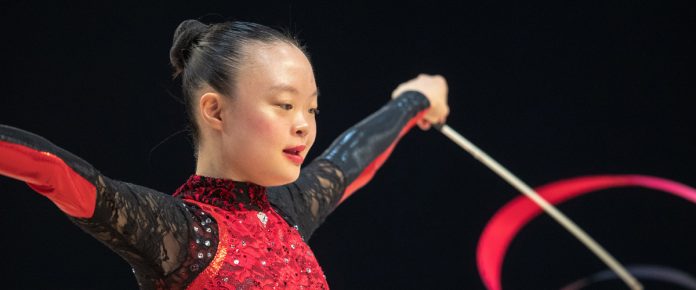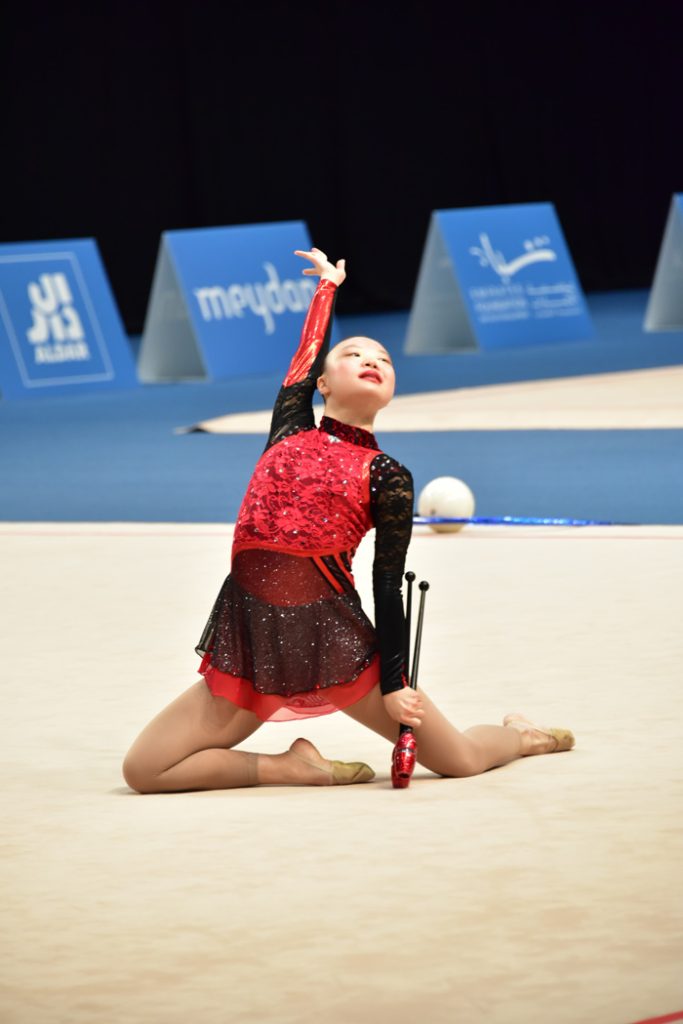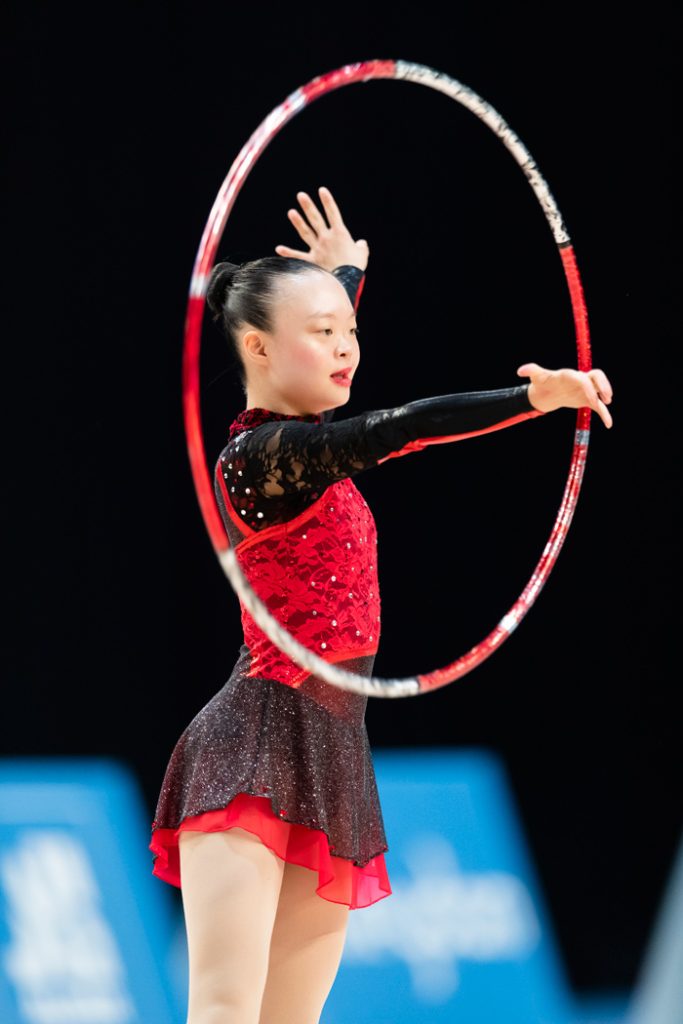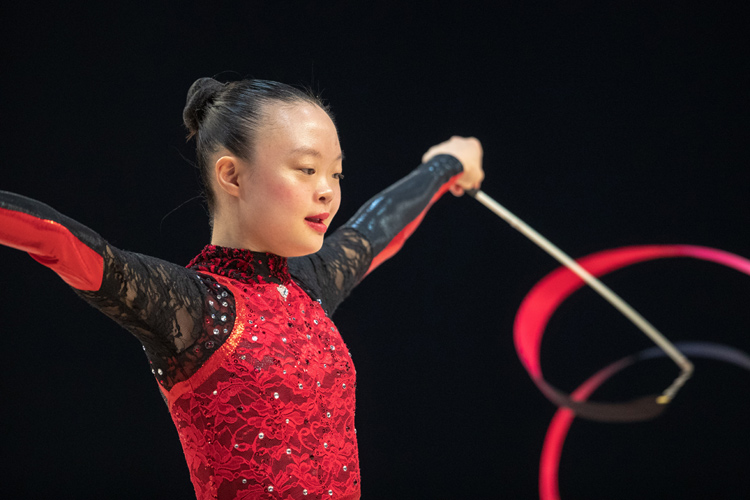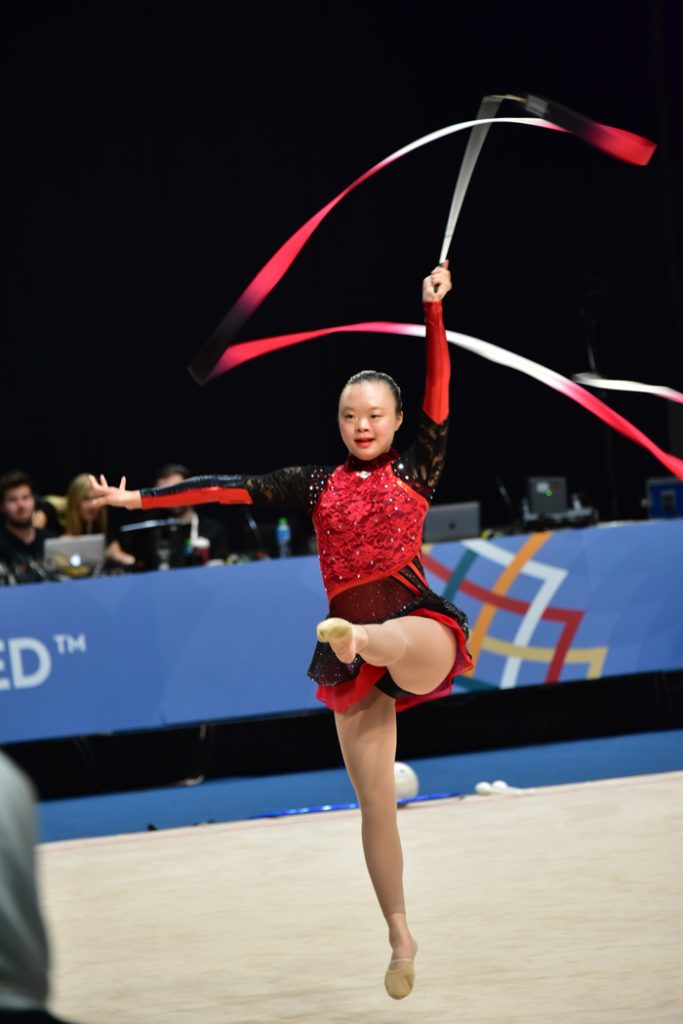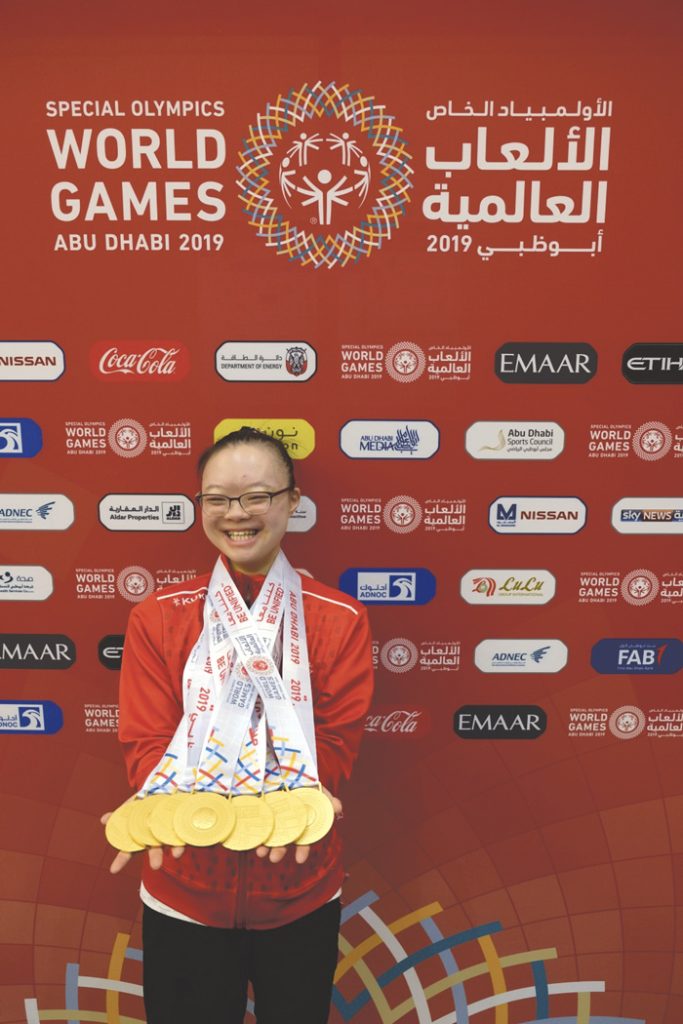By Bradley Turcotte –
Nineteen-year-old McKellar Park resident Kimana Mar triumphantly returned from the 2019 Special Olympics (SO) World Games in Abu Dhabi with seven gold medals from her stellar performances in rhythmic gymnastics.
Five of Kimana’s top-of-the-podium results were in individual events and two came from group routines. Team Canada dismounted Abu Dhabi with 155 medals including 90 gold.
“I felt really good on the carpet,” Kimana says, “showing what I could do.”
[Click photos to enlarge and view captions.]
Kimana first flexed her athleticism in pointed shoes, transferring ballet skills to gymnastics. Competing for over a decade, she cites ribbon routines as her favourite to execute.
“I like how it flows and can be used to express your emotions,” she says. “The ribbon comes in multiple different colours and patterns.”
A left-handed athlete, the ribbon is the sole apparatus Kimana can use with her dominant hand. This requires mirroring the routine. Ball, hoop, and clubs are right-handed events.
The challenges that come with this freedom make the ribbon “extra special,” Kimana says.
Parents Sandra Wong and Anthony Mar accompanied their champion to the United Arab Emirates and were “amazed” by Kimana’s conduct.
“The emotions of standing there on the carpet with people from all around the world cheering her on, it seemed to give her energy,” Sandra observes. “She performed at a level I have never seen.”
Kimana’s medal haul is “a cherry on top,” Anthony says, as the Special Olympics are about more than hardware.
People with intellectual disabilities are frequently othered. They don’t fit in at school or are not welcome to participate in “generic sports,” Anthony says.
“What Special Olympics does is it gives them a place to belong. It gives kids and adults with disabilities a safe place where they are encouraged.”
Currently competing at level three, Kimana says the routines are difficult to master.
“Even though it may seem like a small achievement, like a catch, or in Kimana’s case a specific pose, like an arabesque, it may have taken her four years to get to that point,” Anthony explains. “The coaches and the volunteers in Special Olympics know that and it gets celebrated.”
“Let me win. But if I cannot win, let me be brave in the attempt,” is the Special Olympics oath.
“It is all about trying and making the effort,” Sandra says. “It is a skill that transfers from sport into their everyday lives.”
Since engaging with the Special Olympics, Kimana’s parents have seen her confidence soar and this positive influence has improved her attitude and academics.
“People of all abilities should be treated with dignity and respect,” SO Ontario Programs Chair for Greater Ottawa, Lindsay McPhee, says. “When athletes are able to connect with their community and get access to sport, they are more employable and have better social skills. There are so many benefits to giving them access to Special Olympics.”
There are approximately 800 SO athletes training and competing in the Ottawa area, backed by around 300 volunteers. Ottawa’s SO community is distinctive as one of the only Canadian cities to offer nearly every sport. The Ottawa schedules freeze out speed skating but non-traditional sports like canoe, kayak and bouldering, or rock climbing, are active.
As these athletes require more attention and development, SO employs an athlete/coach ratio system. Volunteering as a coach is mutually beneficial, Lindsay asserts, as SO provides sport-specific training.
Most SO volunteers come to the organization through relationships to athletes but some, like Lindsay, simply have a desire to contribute.
“The more volunteers we get, the more programs we can offer,” Lindsay forecasts. “I don’t think it is a hard sell. We just need more of them.”
Set to move to the highest level of competition next year, this gold medalist is unsure if she will continue.
“The routines will be harder and longer than the routines I am doing now. Definitely, I will never be gone from Special Olympics. If I do not continue in rhythmic gymnastics, I will still do something to support Special Olympics.”
Visit Special Olympics Ontario at specialolympicsontario.ca for information or to volunteer.
*This feature is brought to you in part by Back on Track Physiotherapy and Health Centres.
